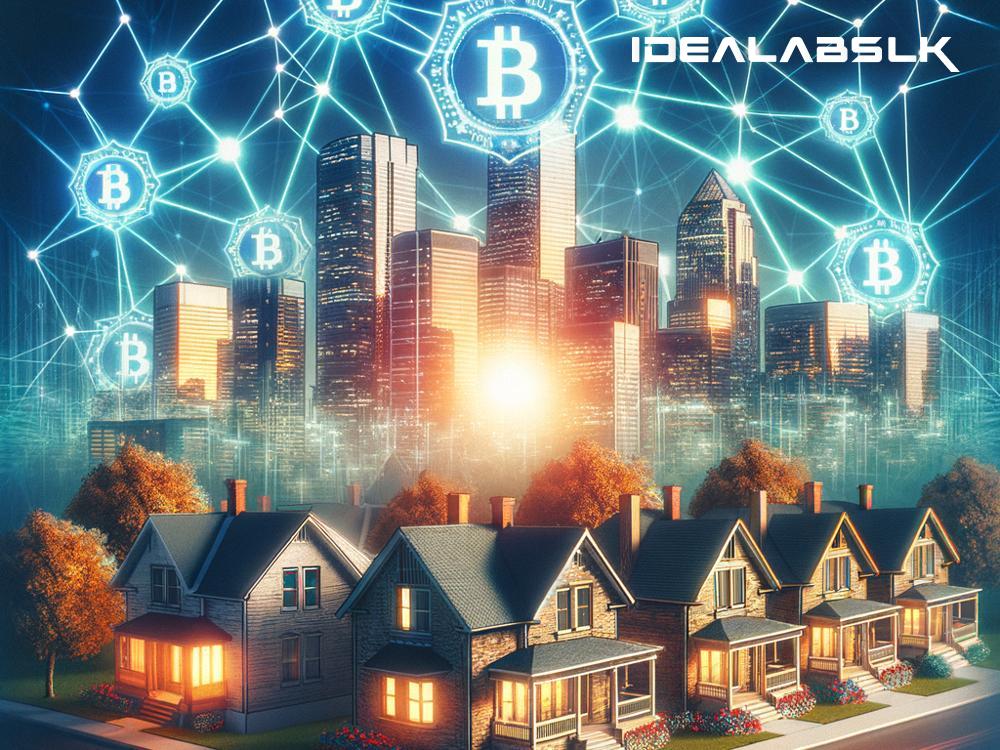Demystifying Blockchain in Real Estate Transactions: A Simplified Guide
In the ever-evolving world of real estate, blockchain technology is carving out a revolutionary path, transforming how properties are bought, sold, and managed. But what exactly is blockchain, and how does it work in the context of real estate transactions? Let’s break it down into simple English, removing all the tech jargon, to understand this fascinating fusion of real estate and cutting-edge technology.
Understanding Blockchain in Layman's Terms
Imagine a digital ledger, similar to a notebook, where all transactions or exchanges are recorded. But, unlike a typical notebook belonging to one person, this digital ledger is duplicated and distributed across a network of computers. Every time a new transaction occurs, it is recorded in every copy of the ledger. The beauty of blockchain is that it is extremely difficult to manipulate or hack, as to change any single transaction record, one would need to alter all copies of the ledger simultaneously across all computers in the network.
In simple terms, think of blockchain as a record-keeping system that promotes transparency, security, and trust through collective verification and recording.
How Blockchain Revolutionizes Real Estate Transactions
1. Smoothing the Way for Trust and Transparency
In traditional real estate transactions, trust is a fundamental component, often facilitated through intermediaries like lawyers and brokers. Blockchain streamlines this, ensuring that all parties involved have access to the same information, transparently recorded, and virtually tamper-proof. This transparency significantly reduces the risk of fraud and errors, fostering trust among buyers, sellers, and other stakeholders.
2. Cutting Down Middlemen and Associated Costs
One of the most groundbreaking aspects of blockchain in real estate is how it potentially cuts out middlemen. Transactions on a blockchain can occur directly between the buyer and seller through smart contracts. These are self-executing contracts where the terms of the agreement are directly written into lines of code. This automation could significantly reduce the need for intermediaries, thus minimizing the associated fees and speeding up the transaction process.
3. Speeding Up Transactions
The traditional process of buying or selling property is notorious for being lengthy and complex, often taking months to complete. Blockchain can streamline many of these processes, since the verification of funds, signing of contracts, and recording of the transaction can all happen in a much more efficient and automated manner. This acceleration benefits everyone involved by reducing waiting times and making the market more dynamic.
4. Enhancing Security and Reducing Fraud
The decentralized and immutable nature of blockchain makes it an incredibly secure technology for conducting transactions. Once a transaction is recorded on a blockchain, altering it is practically impossible without a consensus across the entire network. This characteristic drastically reduces the possibilities for fraud, such as double selling (selling a property to multiple buyers simultaneously) or the manipulation of property records.
5. Simplifying Property Management
Beyond buying and selling, blockchain also holds promise for simplifying property management. Lease agreements, for instance, can be executed via smart contracts, automating rent collection and even maintenance requests. Property owners can manage their assets more efficiently and tenants can enjoy more transparent and responsive interactions.
Real Application of Blockchain in Real Estate
Globally, several real estate transactions have already benefited from blockchain. For instance, in certain countries, property titles are now being recorded on a blockchain, making them easily verifiable and significantly reducing the risk of title fraud. Some companies are pioneering the tokenization of real estate assets, allowing people to buy and sell fractions of properties much like stocks. This opens up investment opportunities to a broader range of investors, democratizing access to what has traditionally been a market with high entry barriers.
Looking Ahead
While we're still in the early days of blockchain in real estate, the potential is undeniable. As technology evolves and more players in the real estate sector embrace blockchain, the promised transformation might well become the new norm. However, challenges such as regulatory hurdles and the need for widespread adoption and understanding remain.
In conclusion, blockchain in real estate is not just about technology; it’s about reimagining the fundamentals of buying, selling, and managing property in a way that is more efficient, secure, and inclusive. As we embark on this exciting journey, the future of real estate seems brighter—and much more interesting—than ever before.

